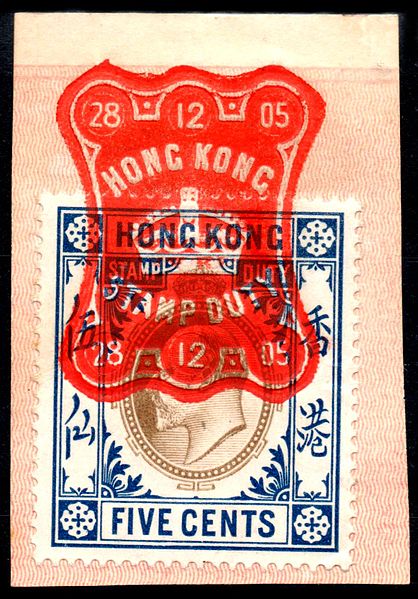An impressed duty stamp is a form of revenue stamp created by impressing (embossing) a stamp onto a document using a metal die to show that the required duty (tax) had been paid. The stamps have been used to collect a wide variety of taxes and duties, including stamp duty and duties on alcohol, financial transactions, receipts, cheques and court fees. Usage has been worldwide but particularly heavy in the United Kingdom and British Commonwealth.
An Irish 1959 Impressed Duty Stamp on part of a cheque
A 1946 India receipt bearing an impressed duty stamp
A 28 December 1905 over-embossing mark in red on a Hong Kong 5c stamp duty revenue stamp
A revenue stamp, tax stamp, duty stamp or fiscal stamp is a (usually) adhesive label used to designate collected taxes or fees on documents, tobacco, alcoholic drinks, drugs and medicines, playing cards, hunting licenses, firearm registration, and many other things. Typically, businesses purchase the stamps from the government, and attach them to taxed items as part of putting the items on sale, or in the case of documents, as part of filling out the form.
An 1898 £1 revenue stamp of Western Australia
Revenue stamps on smuggled tobacco seized by the British tax authorities.
Fiscal stamps of Punadra, Khadal, Ambaliara, Katosan and Jawhar ruled by Koli rulers in India 1947
An 1899 passport tax stamp from Cundinamarca in Colombia







